Main Verb Tenses Takeaways:
- Verb tenses indicate whether an event is from the past, present, or future.
- There are 12verb tenses in the English language.
- Auxiliary words follow most verb tenses.
Verb tenses clarify whether an event is from the past, present, or future. They give your audience a better understanding of when something happened. This guide will teach you about each type. Also, we’ve got some nifty formulas and a chart that you can use for future reference.
How Do You Identify a Verb in English?
Before we dive into verb tenses, let us first understand what a verb is and how you can identify it in a sentence. A verb is commonly defined as any word that shows action or a state of being. But is this the most helpful definition of a verb? Consider the example sentence below:
Can you spot the action words in the sentence? You may say it’s “making” and “boost,” but are they verbs? Unfortunately, the verb in this sentence is not an action word, nor is it a state of being.
So, how can you identify the verb in a sentence? In order to do so, you need the working definition of a verb. Verbs tell the time of the sentence, and we refer to them as tenses.
For you to quickly find a verb, use some time words (past or future) like “last week” or “tomorrow.” Then, place your time word in front of your sentence and see which word changes. Let’s use our previous sentence:
The sentence doesn’t sound or look right. As you may have noticed, we need to change “seems” into “seemed.” In this case, “seems” is the verb we’re looking for because it indicates the sentence’s time.
Now that you know this simple trick let’s discuss what verb tenses are.
What are the English Verb Tenses?
In the English language, verb tenses express when an event occurs. We also use verb tenses to convey events from the past, present, or future. These verb tenses typically follow auxiliary words.
An auxiliary word is a helping word, often a verb, that enhances the underlying meaning of a clause’s main verb. Auxiliaries provide information about a verb’s tense. They can also express details about a mood, number, or person. Can, may, must, and will are examples of auxiliary words.
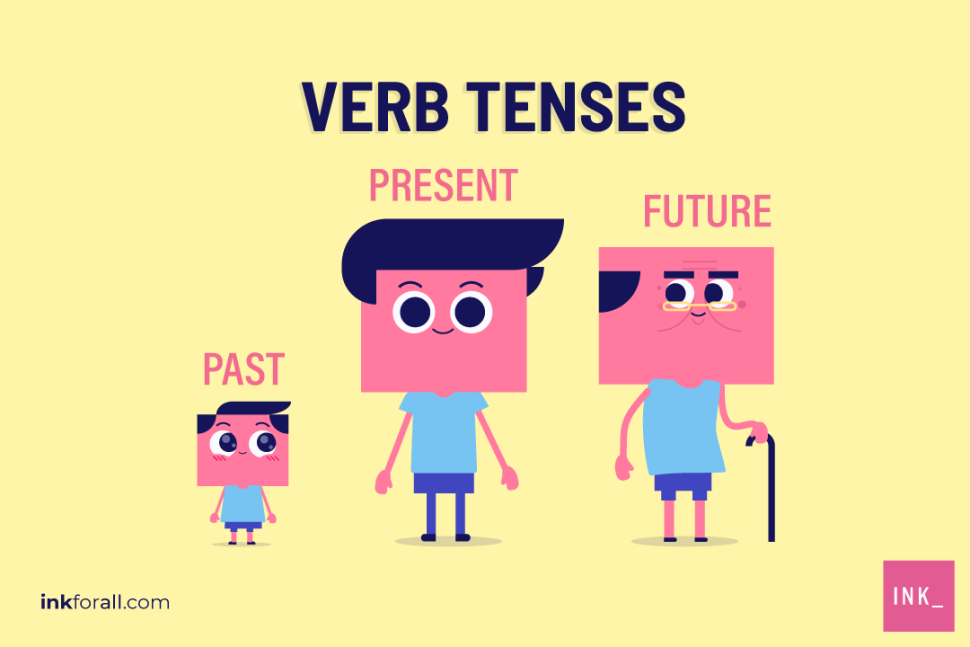

How Do You Use Verb Tenses?
Use verb tenses when you want to show when something has or will happen. Before choosing a tense, consider these tips:
- Know the correct way to express your verb in different tenses, such as adding -ed to a word.
- Also, avoid shifting tenses and remain consistent with verb tense usage.
- Pick the correct auxiliary words, such as will or have.
What are the 12 Tenses of the Verb?
There are 12 verb tenses in the English language:
- Present Simple
- Present Continuous
- Present Perfect
- Present Perfect Continuous
- Past Simple
- Past Continuous
- Past Perfect
- Past Perfect Continuous
- Future Simple
- Future Continuous
- Future Perfect
- Future Perfect Continuous
When paired with an auxiliary word, these tenses provide information about the primary verbs in your sentences.
Past simple, past continuous, past perfect, and past perfect continuous show actions that happened previously.
Meanwhile, future simple, future perfect, future continuous, and future perfect continuoustenses indicate an action that has not happened yet.
What is the Formula for All Tenses?
Most verb tenses follow a specific formula based on the tense you choose. Keep our handy guide bookmarked until you can easily identify or remember the formulas for verb tenses.
Note the verb form in parentheses in these formulas:
- V1 is the base form of the verb (clean, shop, begin)
- V2 is the past simple form of the verb (cleaned, shopped, began)
- V3 is the past participle form of the verb (cleaned, shopped, begun)
| Verb Tense | Formula | Example |
|---|---|---|
| Present Simple | Subject + Verb (v1) + s/es | I play music nearly every day. |
| Past Simple | Subject + Verb (v2) or irregular verb | Yesterday, I playedan entire album. |
| Future Simple | Subject + will/shall + verb (v1) | I will play as many albums as I can this month. |
| Present Continuous | Subject + is/am/are + Verb(+ing) | I am playing The Offspring right now. |
| Past Continuous | Subject + was/were + Verb(+ing) | I was playing Marshmello and Halsey last night. |
| Future Continuous | Subject + will be/shall be + verb(+ing) | I will be playing My Chemical Romance after I download my favorite album. |
| Present Perfect | Subject + Has/have + Verb (v3) | I have played so many songs I can’t keep track. |
| Past Perfect | Subject + had + Verb (v3) | I had played at least 100 albums by the time I was 10. |
| Future Perfect | Subject + will have + verb(v3) | I will have played at least 1,000 songs by the time this year ends. |
| Present Perfect Continuous | Subject + Has/have + been + Verb(+ing) | I have been playing music since I was a toddler. |
| Past Perfect Continuous | Subject + had + been + Verb(+ing) | I had been playing for at least a year before my parents bought me my own iPod. |
| Future Perfect Continuous | Subject + will have been + verb(+ing) | I will have been playing songs for at least 3 hours before practice tonight. |
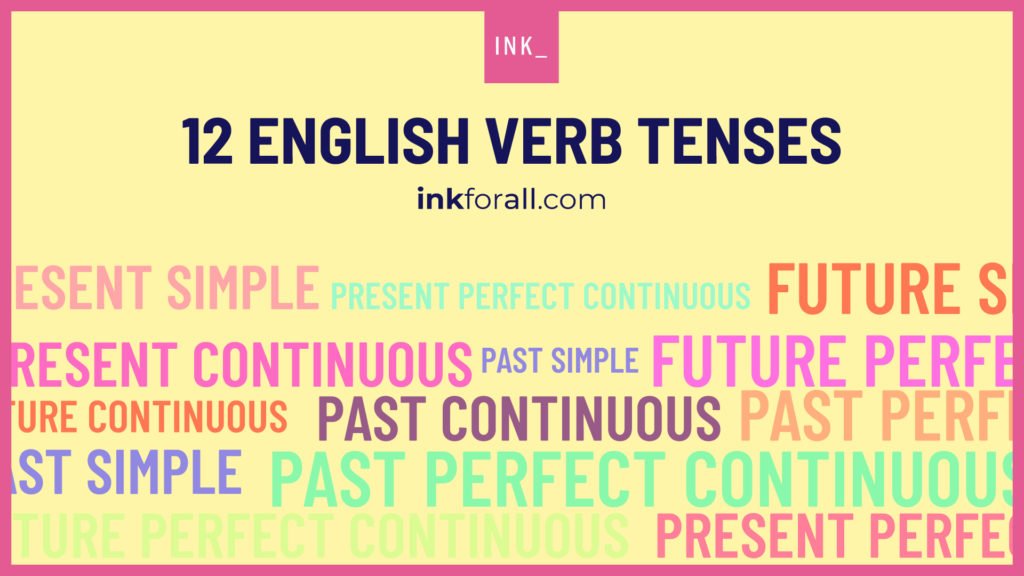

PRESENT TENSE
1. Simple Present Tense
Structure: Subject + Verb (v1) + es/es
2. Present Continuous Tense
Structure: Subject + is/am/are + Verb(+ing)
3. Present Perfect Tense
Structure: Subject + Has/have + Verb (v3)
4. Present Perfect Continuous Tense
Structure: Subject + Has/have + been + Verb(+ing)
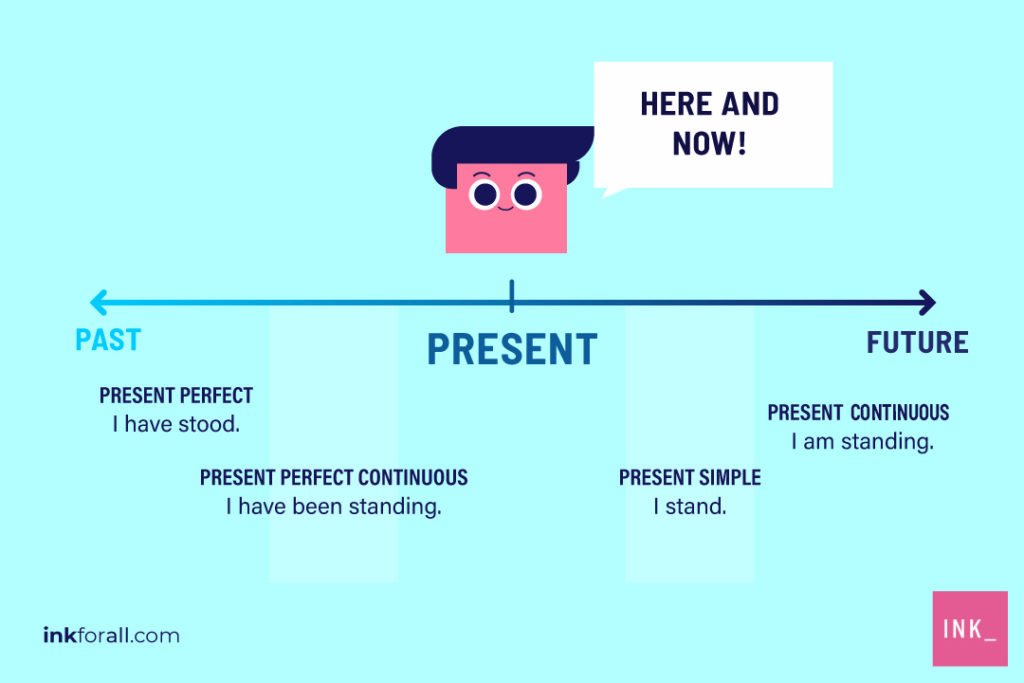

PAST TENSE
5. Simple Past Tense
Structure: Subject + Verb (v2) or irregular verb
6. Past Continuous Tense
Structure: Subject + was/were + Verb(+ing)
7. Past Perfect Tense
Structure: Subject + had + Verb (v3)
8. Past Perfect Continuous Tense
Structure: Subject + had + been + Verb(+ing)
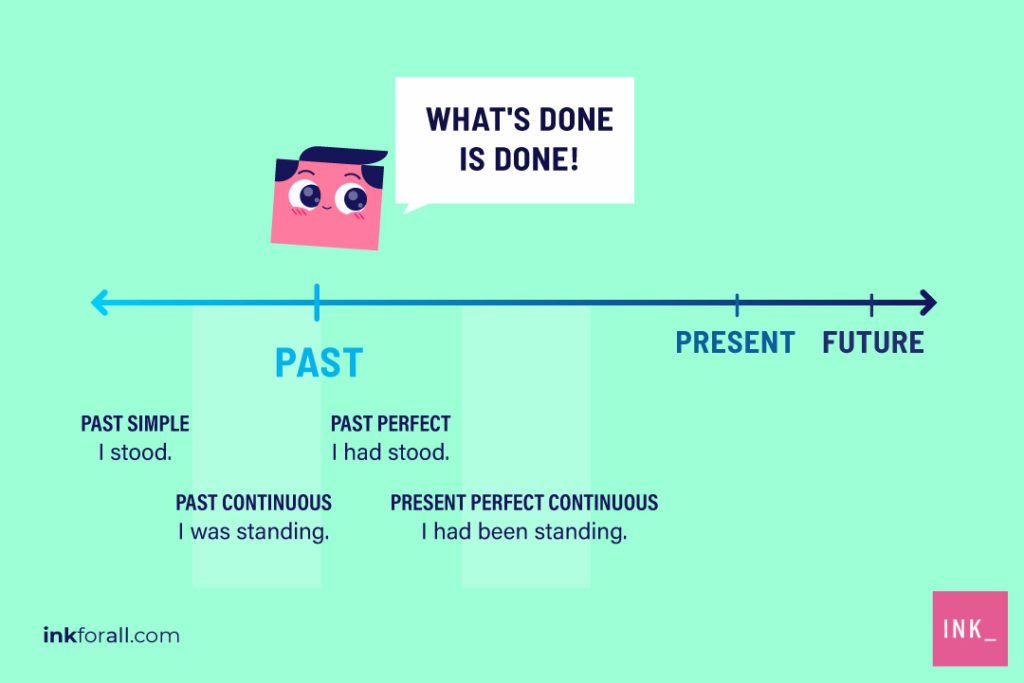

FUTURE TENSE
9. Simple Future Tense
Structure: Subject+ will/shall+ verb(v1)
10. Future Continuous Tense
Structure: Subject + will be/shall be + verb(+ing)
11. Future Perfect Tense
Structure: Subject + will have + verb(v3)
12. Future Perfect Continuous Tense
Structure: Subject + will have been + verb(+ing)
Follow these guidelines and formulas, and you’ll never go wrong with your tenses again.
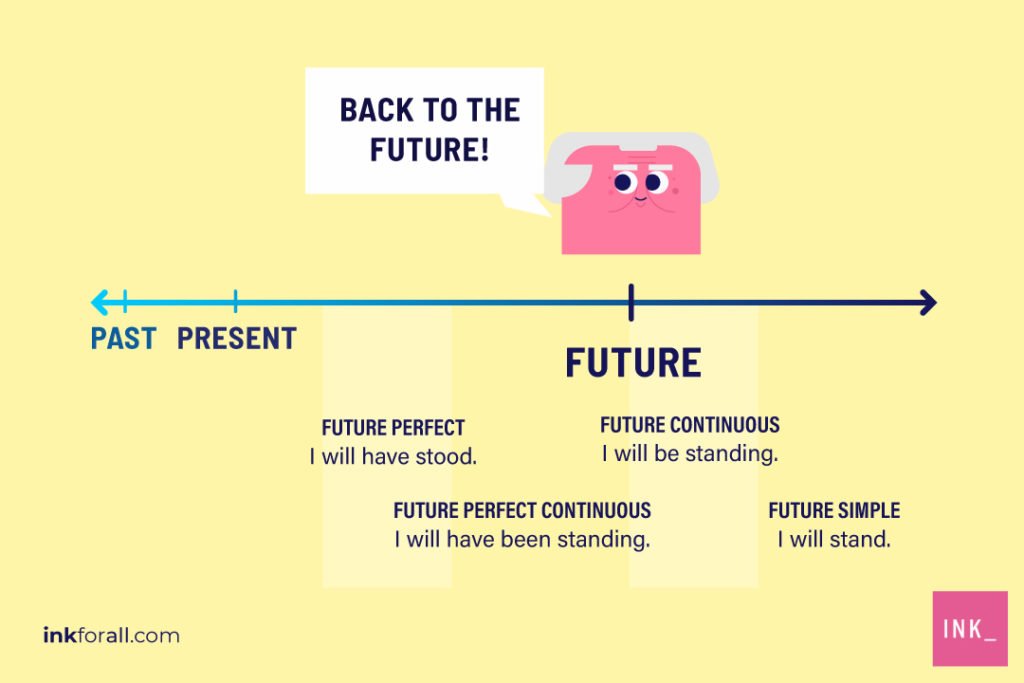

Examples of Common Regular Verbs
Present
abandon act abhor beg behave compare copy disagree dry enjoy entice flow follow grab guess hug hunt identify idolize jag jump kick knock laugh launch magnify mark narrate need obey oblige order pacify pack paint sail slow tame turn use usher vacate vaccinate wait walk yank yawn yield zip zone
Past
abandoned acted abhorred begged behaved compared copied disagreed dried enjoyed enticed flowed followed grabbed guessed hugged hunted identified idolized jagged jumped kicked knocked laughed launched magnified marked narrated needed obeyed obliged ordered pacified packed painted sailed slowed tamed turned used ushered vacated vaccinated waited walked yanked yawned yielded zipped zoned
Future
will / shall abandon will / shall act will / shall abhor will / shall beg will / shall behave will / shall compare will / shall copy will / shall disagree will / shall dry will / shall enjoy will / shall entice will / shall flow will / shall follow will / shall grab will / shall guess will / shall hug will / shall hunt will / shall identify will / shall idolize will / shall jag will / shall jump will / shall kick will / shall knock will / shall laugh will / shall launch will / shall magnify will / shall mark will / shall narrate will / shall need will / shall obey will / shall oblige will / shall order will / shall pacify will / shall pack will / shall paint will / shall sail will / shall slow will / shall tame will / shall turn will / shall use will / shall usher will / shall vacate will / shall vaccinate will / shall wait will / shall walk will / shall yank will / shall yawn will / shall yield will / shall zip will / shall zone
Present Perfect
has/have abandoned has/have acted has/have abhorred has/have begged has/have behaved has/have compared has/have copied has/have disagreed has/have dried has/have enjoyed has/have enticed has/have flowed has/have followed has/have grabbed has/have guessed has/have hugged has/have hunted has/have identified has/have idolized has/have jagged has/have jumped has/have kicked has/have knocked has/have laughed has/have launched has/have magnified has/have marked has/have narrated has/have needed has/have obeyed has/have obliged has/have ordered has/have pacified has/have packed has/have painted has/have sailed has/have slowed has/have tamed has/have turned has/have used has/have ushered has/have vacated has/have vaccinated has/have waited has/have walked has/have yanked has/have yawned has/have yielded has/have zipped has/have zoned
Past Perfect
had abandoned had acted had abhorred had begged had behaved had compared had copied had disagreed had dried had enjoyed had enticed had flowed had followed had grabbed had guessed had hugged had hunted had identified had idolized had jagged had jumped had kicked had knocked had laughed had launched had magnified had marked had narrated had needed had obeyed had obliged had ordered had pacified had packed had painted had sailed had slowed had tamed had turned had used had ushered had vacated had vaccinated had waited had walked had yanked had yawned had yielded had zipped had zoned
Future Perfect
will have abandoned will have acted will have abhorred will have begged will have behaved will have compared will have copied will have disagreed will have dried will have enjoyed will have enticed will have flowed will have followed will have grabbed will have guessed will have hugged will have hunted will have identified will have idolized will have jagged will have jumped will have kicked will have knocked will have laughed will have launched will have magnified will have marked will have narrated will have needed will have obeyed will have obliged will have ordered will have pacified will have packed will have painted will have sailed will have slowed will have tamed will have turned will have used will have ushered will have vacated will have vaccinated will have waited will have walked will have yanked will have yawned will have yielded will have zipped will have zoned
Present Continuous
is/are/am abandoning is/are/am acting is/are/am abhoring is/are/am begging is/are/am behaving is/are/am comparing is/are/am copying is/are/am disagreeing is/are/am drying is/are/am enjoying is/are/am enticing is/are/am flowing is/are/am following is/are/am grabbing is/are/am guessing is/are/am hugging is/are/am hunting is/are/am identifying is/are/am idolizing is/are/am jagging is/are/am jumping is/are/am kicking is/are/am knocking is/are/am laughing is/are/am launching is/are/am magnifying is/are/am marking is/are/am narrating is/are/am needing is/are/am obeying is/are/am obliging is/are/am ordering is/are/am pacifying is/are/am packing is/are/am painting is/are/am sailing is/are/am slowing is/are/am taming is/are/am turning is/are/am using is/are/am ushering is/are/am vacating is/are/am vaccinating is/are/am waiting is/are/am walking is/are/am yanking is/are/am yawning is/are/am yielding is/are/am zipping is/are/am zoning
Past Continuous
was/were abandoning was/were acting was/were abhoring was/were begging was/were behaving was/were comparing was/were copying was/were disagreeing was/were drying was/were enjoying was/were enticing was/were flowing was/were following was/were grabbing was/were guessing was/were hugging was/were hunting was/were identifying was/were idolizing was/were jagging was/were jumping was/were kicking was/were knocking was/were laughing was/were launching was/were magnifying was/were marking was/were narrating was/were needing was/were obeying was/were obliging was/were ordering was/were pacifying was/were packing was/were painting was/were sailing was/were slowing was/were taming was/were turning was/were using was/were ushering was/were vacating was/were vaccinating was/were waiting was/were walking was/were yanking was/were yawning was/were yielding was/were zipping was/were zoning
Future Continuous
will be/shall be abandoning will be/shall be acting will be/shall be abhoring will be/shall be begging will be/shall be behaving will be/shall be comparing will be/shall be copying will be/shall be disagreeing will be/shall be drying will be/shall be enjoying will be/shall be enticing will be/shall be flowing will be/shall be following will be/shall be grabbing will be/shall be guessing will be/shall be hugging will be/shall be hunting will be/shall be identifying will be/shall be idolizing will be/shall be jagging will be/shall be jumping will be/shall be kicking will be/shall be knocking will be/shall be laughing will be/shall be launching will be/shall be magnifying will be/shall be marking will be/shall be narrating will be/shall be needing will be/shall be obeying will be/shall be obliging will be/shall be ordering will be/shall be pacifying will be/shall be packing will be/shall be painting will be/shall be sailing will be/shall be slowing will be/shall be taming will be/shall be turning will be/shall be using will be/shall be ushering will be/shall be vacating will be/shall be vaccinating will be/shall be waiting will be/shall be walking will be/shall be yanking will be/shall be yawning will be/shall be yielding will be/shall be zipping will be/shall be zoning
Present Perfect Continuous
has/have been abandoning has/have been acting has/have been abhoring has/have been begging has/have been behaving has/have been comparing has/have been copying has/have been disagreeing has/have been drying has/have been enjoying has/have been enticing has/have been flowing has/have been following has/have been grabbing has/have been guessing has/have been hugging has/have been hunting has/have been identifying has/have been idolizing has/have been jagging has/have been jumping has/have been kicking has/have been knocking has/have been laughing has/have been launching has/have been magnifying has/have been marking has/have been narrating has/have been needing has/have been obeying has/have been obliging has/have been ordering has/have been pacifying has/have been packing has/have been painting has/have been sailing has/have been slowing has/have been taming has/have been turning has/have been using has/have been ushering has/have been vacating has/have been vaccinating has/have been waiting has/have been walking has/have been yanking has/have been yawning has/have been yielding has/have been zipping has/have been zoning
Past Perfect Continuous
had been abandoning had been acting had been abhoring had been begging had been behaving had been comparing had been copying had been disagreeing had been drying had been enjoying had been enticing had been flowing had been following had been grabbing had been guessing had been hugging had been hunting had been identifying had been idolizing had been jagging had been jumping had been kicking had been knocking had been laughing had been launching had been magnifying had been marking had been narrating had been needing had been obeying had been obliging had been ordering had been pacifying had been packing had been painting had been sailing had been slowing had been taming had been turning had been using had been ushering had been vacating had been vaccinating had been waiting had been walking had been yanking had been yawning had been yielding had been zipping had been zoning
Future Perfect Continuous
will have been abandoning will have been acting will have been abhoring will have been begging will have been behaving will have been comparing will have been copying will have been disagreeing will have been drying will have been enjoying will have been enticing will have been flowing will have been following will have been grabbing will have been guessing will have been hugging will have been hunting will have been identifying will have been idolizing will have been jagging will have been jumping will have been kicking will have been knocking will have been laughing will have been launching will have been magnifying will have been marking will have been narrating will have been needing will have been obeying will have been obliging will have been ordering will have been pacifying will have been packing will have been painting will have been sailing will have been slowing will have been taming will have been turning will have been using will have been ushering will have been vacating will have been vaccinating will have been waiting will have been walking will have been yanking will have been yawning will have been yielding will have been zipping will have been zoning
Examples of Common Irregular Verbs
Present
arise bear beat beget begin choose cling cost cut do draw drink drive eat fall feed fight fling fly get give go grow hang hide hold keep know lay lead lie light make mean pay prove quit read ride say see shrink sleep take teach wake wear weep
Past
arose bore beat begot began chose clung cost cut did drew drank drove ate fell fed fought flung flew got gave went grew hung hid held kept knew laid led lay lit made meant paid proved quit read rode said saw shrank slept took taught woke wore wept
Future
will / shall arise will / shall bear will / shall beat will / shall beget will / shall begin will / shall choose will / shall cling will / shall cost will / shall cut will / shall do will / shall draw will / shall drink will / shall drive will / shall eat will / shall fall will / shall feed will / shall fight will / shall fling will / shall fly will / shall get will / shall give will / shall go will / shall grow will / shall hang will / shall hide will / shall hold will / shall keep will / shall know will / shall lay will / shall lead will / shall lie will / shall light will / shall make will / shall mean will / shall pay will / shall prove will / shall quit will / shall read will / shall ride will / shall say will / shall see will / shall shrink will / shall sleep will / shall take will / shall teach will / shall wake will / shall wear will / shall weep
Present Perfect
has / have arisen has / have born has / have beaten has / have begotten has / have begun has / have chosen has / have clung has / have cost has / have cut has / have done has / have drawn has / have drunk has / have driven has / have eaten has / have fallen has / have fed has / have fought has / have flung has / have flown has / have gotten has / have given has / have gone has / have grown has / have hung has / have hidden has / have held has / have kept has / have known has / have laid has / have led has / have lain has / have lit has / have made has / have meant has / have paid has / have proven has / have quit has / have read has / have ridden has / have said has / have seen has / have shrunk has / have slept has / have taken has / have taught has / have woken has / have worn has / have wept
Past Perfect
had arisen had born had beaten had begotten had begun had chosen had clung had cost had cut had done had drawn had drunk had driven had eaten had fallen had fed had fought had flung had flown had gotten had given had gone had grown had hung had hidden had held had kept had known had laid had led had lain had lit had made had meant had paid had proven had quit had read had ridden had said had seen had shrunk had slept had taken had taught had woken had worn had wept
Future Perfect
will have arisen will have born will have beaten will have begotten will have begun will have chosen will have clung will have cost will have cut will have done will have drawn will have drunk will have driven will have eaten will have fallen will have fed will have fought will have flung will have flown will have gotten will have given will have gone will have grown will have hung will have hidden will have held will have kept will have known will have laid will have led will have lain will have lit will have made will have meant will have paid will have proven will have quit will have read will have ridden will have said will have seen will have shrunk will have slept will have taken will have taught will have woken will have worn will have wept
Present Continuous
is / are / am arising is / are / am bearing is / are / am beating is / are / am begetting is / are / am beginning is / are / am choosing is / are / am clinging is / are / am costing is / are / am cutting is / are / am doing is / are / am drawing is / are / am drinking is / are / am driving is / are / am eating is / are / am falling is / are / am feeding is / are / am fighting is / are / am flinging is / are / am flying is / are / am getting is / are / am giving is / are / am going is / are / am growing is / are / am hanging is / are / am hiding is / are / am holding is / are / am keeping is / are / am knowing is / are / am laying is / are / am leading is / are / am lying is / are / am lighting is / are / am making is / are / am meaning is / are / am paying is / are / am proving is / are / am quitting is / are / am reading is / are / am riding is / are / am saying is / are / am seeing is / are / am shrinking is / are / am sleeping is / are / am taking is / are / am teaching is / are / am waking is / are / am wearing is / are / am weeping
Past Continuous
was / were arising was / were bearing was / were beating was / were begetting was / were beginning was / were choosing was / were clinging was / were costing was / were cutting was / were doing was / were drawing was / were drinking was / were driving was / were eating was / were falling was / were feeding was / were fighting was / were flinging was / were flying was / were getting was / were giving was / were going was / were growing was / were hanging was / were hiding was / were holding was / were keeping was / were knowing was / were laying was / were leading was / were lying was / were lighting was / were making was / were meaning was / were paying was / were proving was / were quitting was / were reading was / were riding was / were saying was / were seeing was / were shrinking was / were sleeping was / were taking was / were teaching was / were waking was / were wearing was / were weeping
Future Continuous
will be/shall be arising will be/shall be bearing will be/shall be beating will be/shall be begetting will be/shall be beginning will be/shall be choosing will be/shall be clinging will be/shall be costing will be/shall be cutting will be/shall be doing will be/shall be drawing will be/shall be drinking will be/shall be driving will be/shall be eating will be/shall be falling will be/shall be feeding will be/shall be fighting will be/shall be flinging will be/shall be flying will be/shall be getting will be/shall be giving will be/shall be going will be/shall be growing will be/shall be hanging will be/shall be hiding will be/shall be holding will be/shall be keeping will be/shall be knowing will be/shall be laying will be/shall be leading will be/shall be lying will be/shall be lighting will be/shall be making will be/shall be meaning will be/shall be paying will be/shall be proving will be/shall be quitting will be/shall be reading will be/shall be riding will be/shall be saying will be/shall be seeing will be/shall be shrinking will be/shall be sleeping will be/shall be taking will be/shall be teaching will be/shall be waking will be/shall be wearing will be/shall be weeping
Present Perfect Continuous
has/have been arising has/have been bearing has/have been beating has/have been begetting has/have been beginning has/have been choosing has/have been clinging has/have been costing has/have been cutting has/have been doing has/have been drawing has/have been drinking has/have been driving has/have been eating has/have been falling has/have been feeding has/have been fighting has/have been flinging has/have been flying has/have been getting has/have been giving has/have been going has/have been growing has/have been hanging has/have been hiding has/have been holding has/have been keeping has/have been knowing has/have been laying has/have been leading has/have been lying has/have been lighting has/have been making has/have been meaning has/have been paying has/have been proving has/have been quitting has/have been reading has/have been riding has/have been saying has/have been seeing has/have been shrinking has/have been sleeping has/have been taking has/have been teaching has/have been waking has/have been wearing has/have been weeping
Past Perfect Continuous
had been arising had been bearing had been beating had been begetting had been beginning had been choosing had been clinging had been costing had been cutting had been doing had been drawing had been drinking had been driving had been eating had been falling had been feeding had been fighting had been flinging had been flying had been getting had been giving had been going had been growing had been hanging had been hiding had been holding had been keeping had been knowing had been laying had been leading had been lying had been lighting had been making had been meaning had been paying had been proving had been quitting had been reading had been riding had been saying had been seeing had been shrinking had been sleeping had been taking had been teaching had been waking had been wearing had been weeping
Future Perfect Continuous
will have been arising will have been bearing will have been beating will have been begetting will have been beginning will have been choosing will have been clinging will have been costing will have been cutting will have been doing will have been drawing will have been drinking will have been driving will have been eating will have been falling will have been feeding will have been fighting will have been flinging will have been flying will have been getting will have been giving will have been going will have been growing will have been hanging will have been hiding will have been holding will have been keeping will have been knowing will have been laying will have been leading will have been lying will have been lighting will have been making will have been meaning will have been paying will have been proving will have been quitting will have been reading will have been riding will have been saying will have been seeing will have been shrinking will have been sleeping will have been taking will have been teaching will have been waking will have been wearing will have been weeping
How Well do you Know the Verb Tenses now?
Verb Tenses Question #1
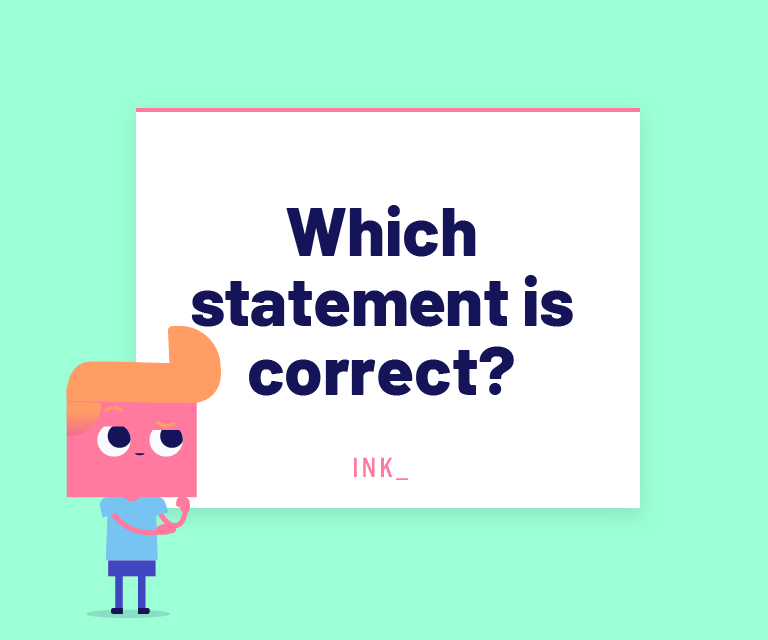

Please select 2 correct answers
The answers are A and C. Verb tenses express when an event occurs and can convey whether an event is from the past, present, or future.
Verbs Question #2
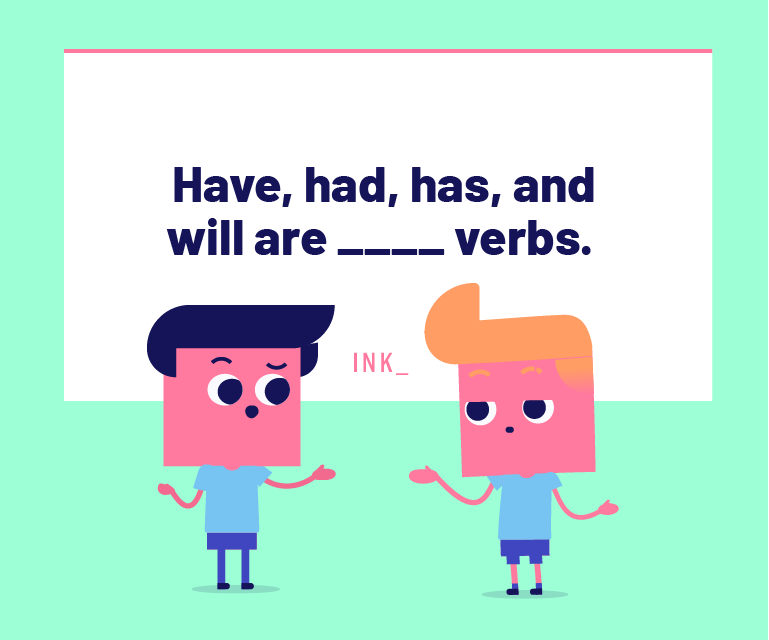

The answer is A. Helping verbs enhance the underlying meaning of a sentence’s main verb.
Tenses of Verb Question #3
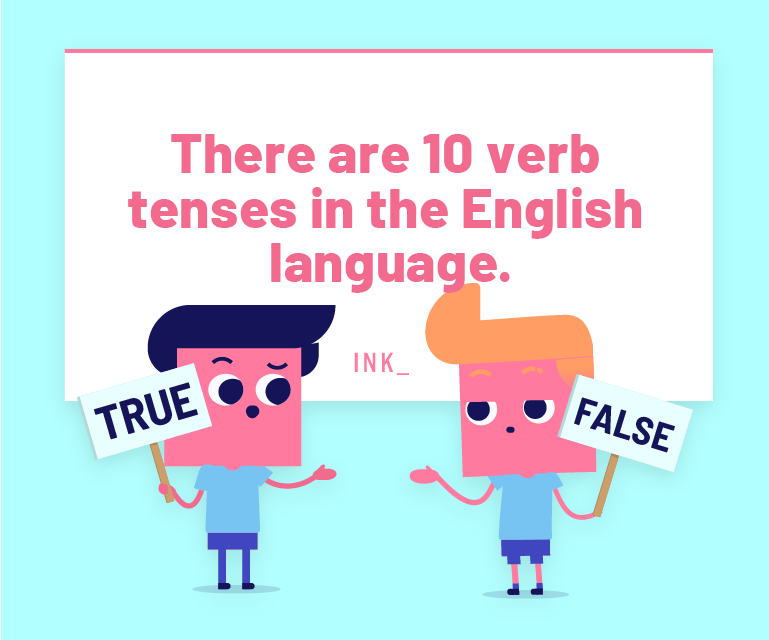

The answer is FALSE. There are 12 verb tenses in the English Language.
Verb Tense Question #4
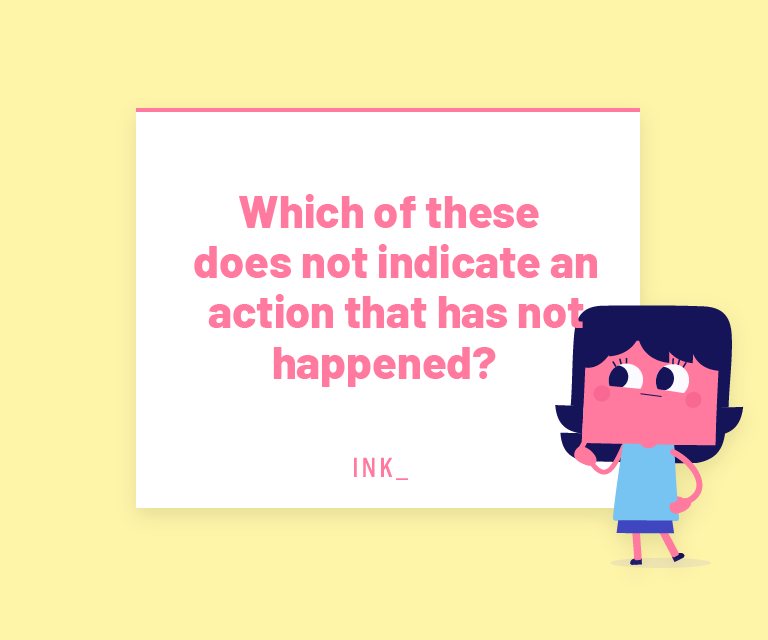

The answer is C. Present simple tense can indicate an event that occurs regularly.
Present Perfect Question #5
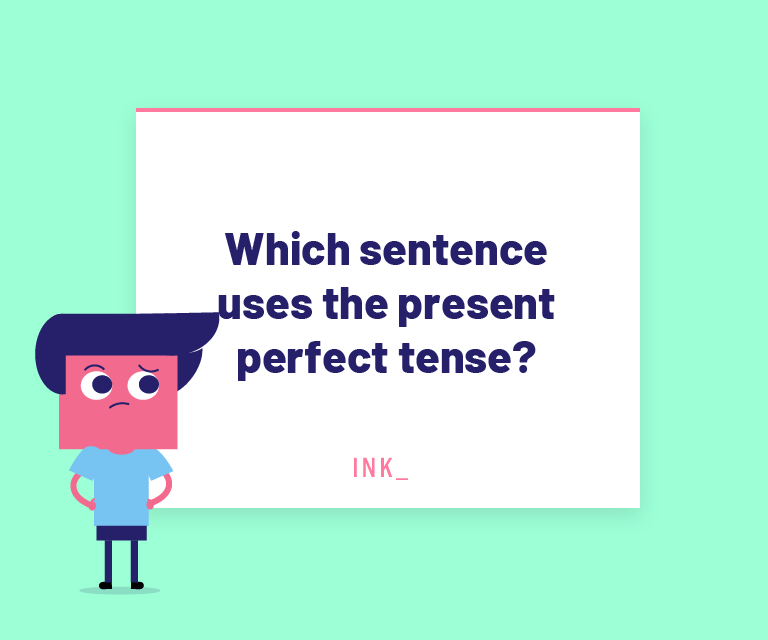

The answer is B. The formula for present perfect tense is has/have + the past participle form of the verb.
Tenses Question #6
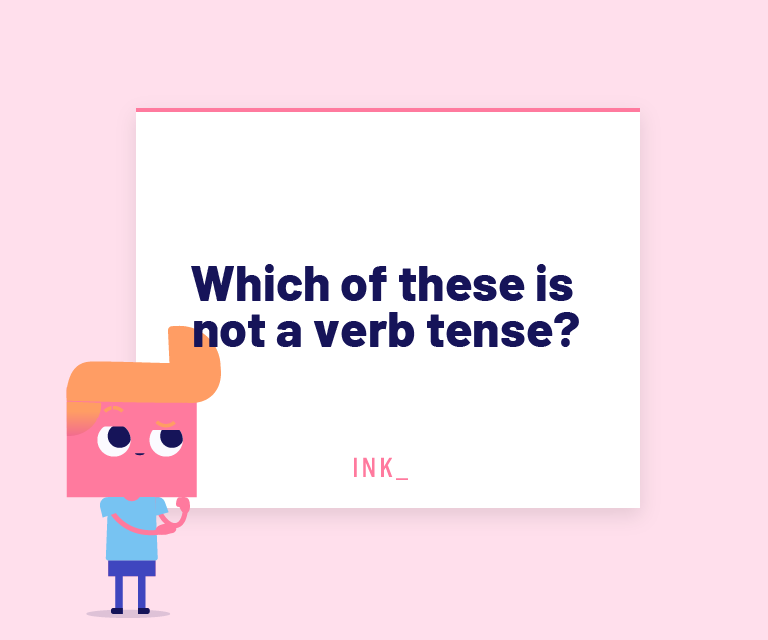

The answer is C. Present simple tense can indicate an event that occurs regularly.

Thanks for sharing, quite helpful and informative
I like the examples of past tenses
Thanks, Bert! Don’t forget to take the short quiz at the end to test your mastery. Let us know what you think. Thanks again for your comment!
Thanks for sharing 😊
You’re welcome, Feme! We hope you find this article helpful. Have a great day!
Tnx for Everything
You’re welcome, Barsha! Have you tried the quiz? How was it? Do let us know if there’s anything else that we can do to improve our article. Have a great day!
I like these questions because they improve my english
Hi!
Thank you for reading! We’re glad you found our post helpful. Feel free to browse our other articles and let us know how we can make them even better. Take care!
Rechelle
Thanks for sharing, it was a helpful article
Thank you, Mukhlisa! We appreciate your comment and we’re glad you found this article helpful. Let us know if there’s anything else that we can do to make it better. Have a great day!
thank you so much for explaining this so well. I am a teenager but still i never understood tenses which made it really hard for me and this post was like the BEST. THANKS AGAIN.3
Can i know what does es/es means?
Zahra, great catch! The correct version is s/es, and we’ve updated our article to reflect this. The meaning of s/es is they are verb endings for present simple tense. So, for example, live would become: lives. He lives for chocolate! Or, instead of saying pass, it would become: passes. She passes the book to her friend. Hope this clarifies things. Thanks for stopping by!
Could I know whare hi past participate verb example regular and irregular both
Hi Alka! There are several regular and irregular verbs shown in the past participle tense in the charts in this post. We have used v3 to denote the past participle form. Thanks for your question and stopping by! 🙂
This is 99.9%wrong
I give right ans
Hello there! Rest assured that all our posts have gone through thorough research to ensure the correctness of the information we’re sharing with our readers. Feel free to share with us via our email hello@inkco.co any question or concern you have regarding our post. We’ll look forward to your feedback. Have a great day!
Parth
very nice ji
Thank you, Ravinder!
i like these quiz most.
Hello Priyanshu! Feel free to visit our other grammar-related articles and answer more quizzes. Don’t forget to share your experience with us. Have a great day!
Is it helpful for me to fluent my english.
Hello Sejal! Learning English and being fluent in it has its benefits. For instance, it will allow you to communicate effectively with new people and get a deeper understanding of their culture. It will come in handy when you’re traveling abroad, either for leisure or business. So to answer you question, yes, being fluent in English can be beneficial to you in the long run. Hope this answer helps. Have a great day!
Iam greatfull thaks for this and this is big help for me and every student please ybupdates new like this new
Hello Tahura! Thank you for the positive feedback and we’re glad that you find our article helpful. Have a great day!
Thx! mam very very helpful,for me. God bless you
Give another examples of future perfect continuous tense..
Many Many Thanks for sharing, quite helpful and informative
THANK YOU FOR SHARING THIS IS WAS HELPFUL IT IMPROVED MY ENGLISH
Super madam your the best teacher in the world , lot of thank you . Yours service need to society
Thank you so much, Jeevitha, appreciate it! Glad you found it helpful. Thanks for stopping by!
Nothing to say it was awesome
Ok really
Can the knowledge of grammar help to speak English. If so, how does a child learn to speak?